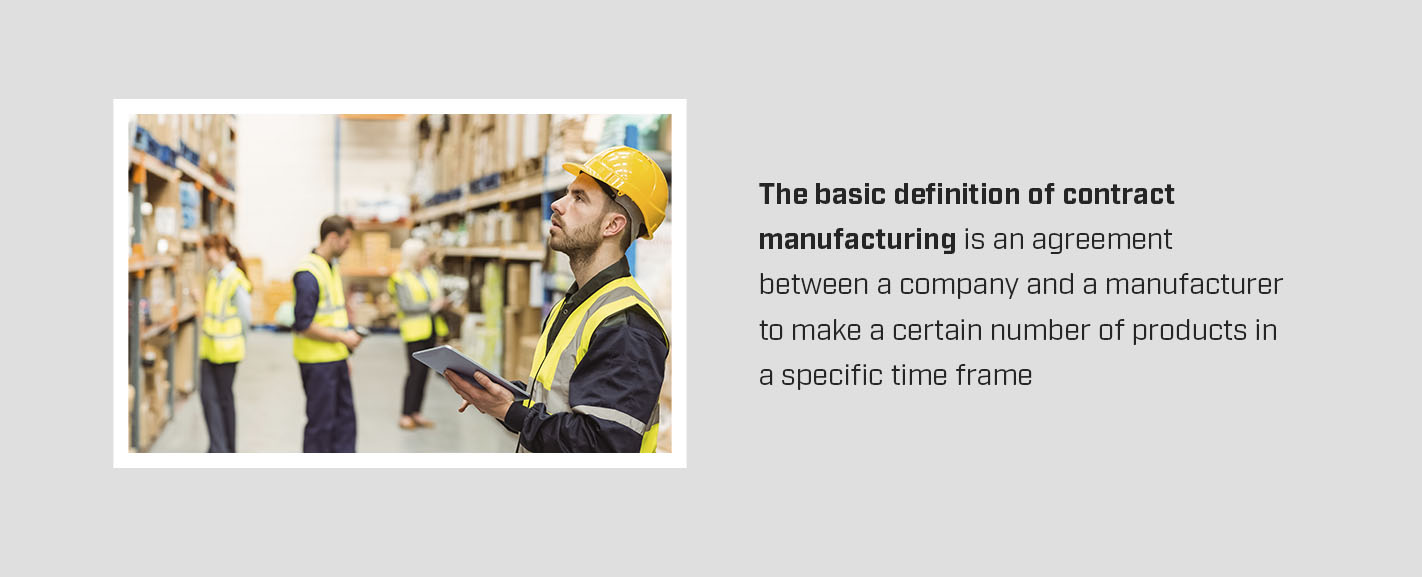
If you’re looking to produce and sell a new product but need to partner with a larger manufacturer to meet your production needs, two popular options are contract manufacturing and private label manufacturing. Both types have an end goal of making high-quality products, but the processes for accomplishing this goal have several significant differences.
Learn more about each option, as well as their advantages and key differences, to make an informed choice for your business.
The basic definition of contract manufacturing is an agreement between a company and a manufacturer to make a certain number of products in a specific time frame. With contract manufacturing, the company approaches the manufacturer with particular product specifications so they can produce the item in their facilities. The manufacturer may offer suggestions and advice based on their experience, but the company retains control and responsibility for the final product.

Contract manufacturing is incredibly beneficial for larger companies that have their own product designs but want to outsource the manufacturing to a third party. Some of the advantages of contract manufacturing include:
With private label manufacturing, your company adds its branding to a product that the private label manufacturer has already designed and produced. The manufacturer will typically retain control over the product specifications and manufacturing process. Private label manufacturing is a popular choice for stores — like grocery, cosmetic and stationery stores — that want to have their own products on the shelves alongside other industry leaders, but at lower price points.
Private label manufacturing works well for businesses that do not have the time or resources to develop a product on their own — these companies are simply looking to add something their customers want to their product line. In this case, private label manufacturing offers the following advantages over contract manufacturing:

While private label manufacturing works for certain businesses, there are also downsides you should be aware of before choosing this option.
The main issue with a private label contract is you do not have control over the product you are putting your name on. You won’t have any say in the production process, you won’t own the formula or design, and you won’t have control over when and how any tweaks are made to the product. This is sometimes an advantage for businesses looking to sell an established product, but for any type of customization, you’ll need to partner with a contract manufacturer.
Private label manufacturers also supply products to multiple companies, so your competitors may be selling the exact same items. This can be beneficial if you want to enter the market with a similar item but at a lower cost, but you’ll lack a competitive advantage past your price point.
Private label manufacturing and contract manufacturing both result in the same thing — a product your business can sell without manufacturing it yourself. However, it’s important to understand the main differences so you can choose the option most suited to your requirements. Consider the following factors before making your choice:
Overall, if you would prefer just to put your brand name on an existing product, a private label contract might be the best fit. However, if you’ve designed a product and need a factory to produce it for you, contract manufacturing will afford you much more control over the end result.
PBZ Manufacturing specializes in custom metal fabrication for businesses in a wide range of industries in Pennsylvania looking to outsource their manufacturing to experienced professionals. Our manufacturing services include laser cutting, tube bending, press brake and welding. However, we can handle the entire process from design and manufacturing to finishing, assembly and shipping. Together, we’ll streamline your production process, improve efficiency and lower costs.
Submit a quote form today or call 717-584-8767 to get started.